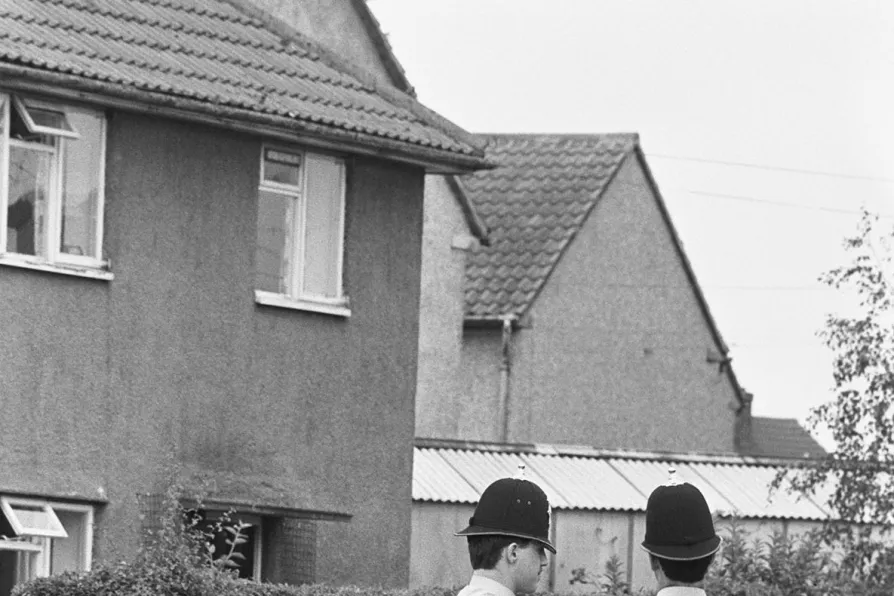As tens of thousands return to the streets for the first national Palestine march of 2026, this movement refuses to be sidelined or silenced, says PETER LEARY


THE 40th anniversary of the 1984-5 miners’ strike means we are getting a lot of retrospective documentaries on television and “looking back” articles in the newspapers.
So I thought it worth digging out some Home Office papers I got hold of back in 2009 about the strike — and in particular about the anti-strike miner code-named “Silver Birch.”
He was called the “peace pits Pimpernel” in the newspapers of the time — The Scarlet Pimpernel is a famous movie about an English adventurer who, under that code name, saves aristocrats from the guillotine in the French Revolution.
So the press wanted to paint Silver Birch as a similar heroic fighter against the scary radicals. The internal police documents I got suggested Silver Birch was more pimple than Pimpernel.
The way the miners’ strike is now viewed by the mainstream is a lot more sympathetic than it was then, and this is reflected in a lot of the retrospective documentaries and articles.
In 1984 there was huge support for the striking miners on the left, among the trade unions and the young. But they were also vilified and attacked by the centrists and the right, and this was reflected in a largely hostile press.
When the battle is on, the right-wing press is pretty uniform in attacking any radical challenge, while the “liberal” media is vacillating and easily bullied into line. After the heat of battle, we can take a fairer view. This was as true about Silver Birch as it was about other aspects of the strike.
Silver Birch was a Nottinghamshire miner who tried to organise a “back to work” movement to defy the strike. The newspapers liked the idea that the miners drifting back to work in the long, hard strike was some kind of principled stand for “freedom” against “bullies” rather than workers being starved back.
So Silver Birch got a vast amount of media coverage. For example, the Times ran articles with headlines like “Secret trips of Silver Birch” saying the undercover miner “drove 4,000 miles in the past two weeks” organising “among miners who want to return to work” and “organise against Scargillism.”
While the Telegraph had a front-page headline “Secret Leader heads ‘let us work’ Miners,” reporting underneath that “Miners from nine coalfields, led by a Nottinghamshire man using the name Silver Birch, have held secret talks in London in an effort to end the coal strike.”
To add to the heroic feel, the newspaper told us “Silver Birch” had “adopted his pseudonym because of his build and white hair.”
But it turns out Silver Birch was a bit more Silver Berk. And that’s official. Documents released to me under the Freedom of Information Act include an intelligence report on Silver Birch drawn up in August 1984 by the Association of Chief Police Officers for home secretary Leon Brittan.
While Silver Birch was a useful propaganda tool, the police believed he was also, well, a bit of a tool: he may have encouraged opponents of the strike outside the mines, but the police felt he had little direct effect on the miners themselves.
The report says that Silver Birch, who was actually 35-year-old Bevercotes miner Chris Butcher, reported to “a detective inspector in the intelligence office at Nottinghamshire Police Headquarters.” The paper says: “This officer’s assessment is that [Butcher] ‘is genuine but not too bright’ although he appears sincere as to his attentions.”
Not-too-bright Birch also seemed short on support in the pits. The police say Silver Birch asked for police protection at his secret meetings in pubs “in the form of a standby unit in the vicinity but not in an overt position.” The undercover cops used their secret protection squads to check out Birch’s roots: “Special Branch checks indicate that the support at these meetings may not be as wide as [Butcher] himself suggests.”
However, that might miss the point. Silver Birch was more a propaganda operation for the rest of the country than an undercover operation among the miners. As the police note: “At the present time he is being accommodated at an unknown hotel in Blackpool, courtesy of the [Mail] newspaper, and his constant companion is reporter xxxx, who is the author of the present articles.” Silver Birch was more of a press operation aimed at creating the image of disunity among the miners to try and undermine support for the strike from non-miners.

SOLOMON HUGHES highlights a 1995 Sunday Times story about the disappearance of ‘defecting Iraqi nuclear scientist.’ Even though the story was debunked, it was widely repeated across the mainstream press, creating the false – and deadly – narrative of Iraqi WMD that eventually led to war














